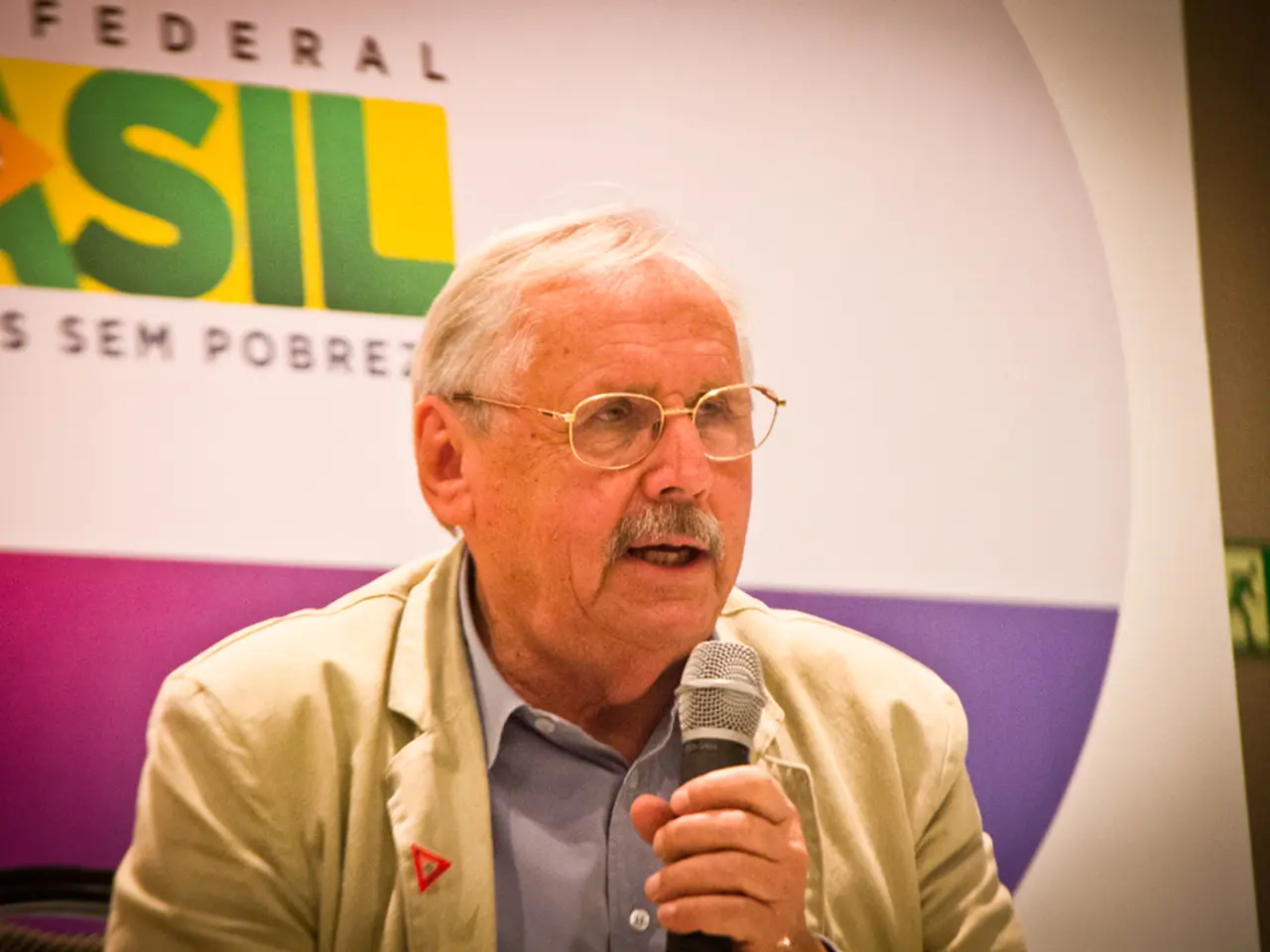Washington Protest Call: Trump's Debatable Decision Sparks Demonstrations - Proposed Trump Directive Sparks Call for Demonstrations in Washington
In an unprecedented move, President Donald Trump has taken control of the Washington D.C. police force, marking the first-ever use of the Home Rule Act's emergency powers to federalise the D.C. police. This decision, announced on his Truth Social platform, comes with the promise of accommodations "far away from the capital."
The federal takeover includes the appointment of a federal official as Emergency Police Commissioner, the deployment of about 800 National Guard troops, and the reassigning of federal agents for patrol duties. Trump justifies these actions as necessary to address alleged crime surges in the city.
However, this level of federal control over a local police force is unlike any previous instances, particularly in Los Angeles. In Los Angeles, federal authorities may provide support, but they do not directly control the local police force.
Here's a comparison of the two situations:
| Aspect | Washington D.C. under Trump (2025) | Los Angeles Previous Instances | |----------------------------------|------------------------------------------------------------|-------------------------------------------------| | Legal basis | Home Rule Act of 1973, allowing federal takeover of D.C. police under emergency conditions (first time used) | No equivalent federal law allowing takeover of LAPD | | Federal control | Direct federal appointment of police leadership and deployment of National Guard under federal orders | National Guard or federal forces may be deployed for support but not direct control over LAPD | | Duration | Temporary (30 days unless Congress extends) | Typically support role only, without formal law enforcement control | | Local opposition and lawsuits | Strong legal pushback from D.C. officials and police union; judge required DOJ to revise orders | Not comparable legal or political conflict on federal takeover of LAPD found in records |
The deployment of National Guard troops in Washington is also a significant escalation, as it involves arming the troops, a move considered a significant departure from typical deployments seen elsewhere.
The federal control can remain in effect for a maximum of 30 days without the approval of both chambers of Congress. Trump has placed the police in Washington under the command of Attorney General Pam Bondi. He has also ordered the deployment of 800 National Guard soldiers, with the possibility of more forces being mobilized.
Protests have temporarily blocked traffic on a popular nightlife street in Washington's city center, but larger protests have not yet materialized, and the situation remains largely calm in the evening. Trump's decision has sparked controversy, with critics arguing that he is inserting himself into local matters.
Trump has been stirring up sentiment against criminals and homeless people in Washington for weeks, calling for them to move out. This is not the first time Trump has been criticized for intervening in local affairs, as he previously sent soldiers to the streets of Los Angeles for a short time to deter ICE immigration raids against the explicit will of California's Democratic Governor Gavin Newsom.
Despite Trump's claims about high crime rates in Washington D.C., police statistics contradict this, showing a decrease in reported offenses. The U.S. President can initially place the local Washington police under federal control for up to 48 hours without informing Congress. In the case of the U.S. capital, which is not a separate state, the National Guard is directly under the president's command.
- Amidst the ongoing controversy, the Commission has also been asked to submit a proposal for a directive on the protection of workers from the risks related to exposure to ionizing radiation, given the increased presence of National Guard troops equipped with advanced weaponry in Washington D.C.
- The escalating political tensions in Washington, marked by Trump's federal control over the local police, have led to discussions in policy-and-legislation circles about potential long-term implications for Federal-State relations, especially as it pertains to war-and-conflicts scenarios.
- The recent events in Washington, including crime-and-justice issues, have become a focal point of general news outlets, with the ongoing controversy surrounding Trump's control over the local police force highlighting broader issues of politics and civil liberties in America.






